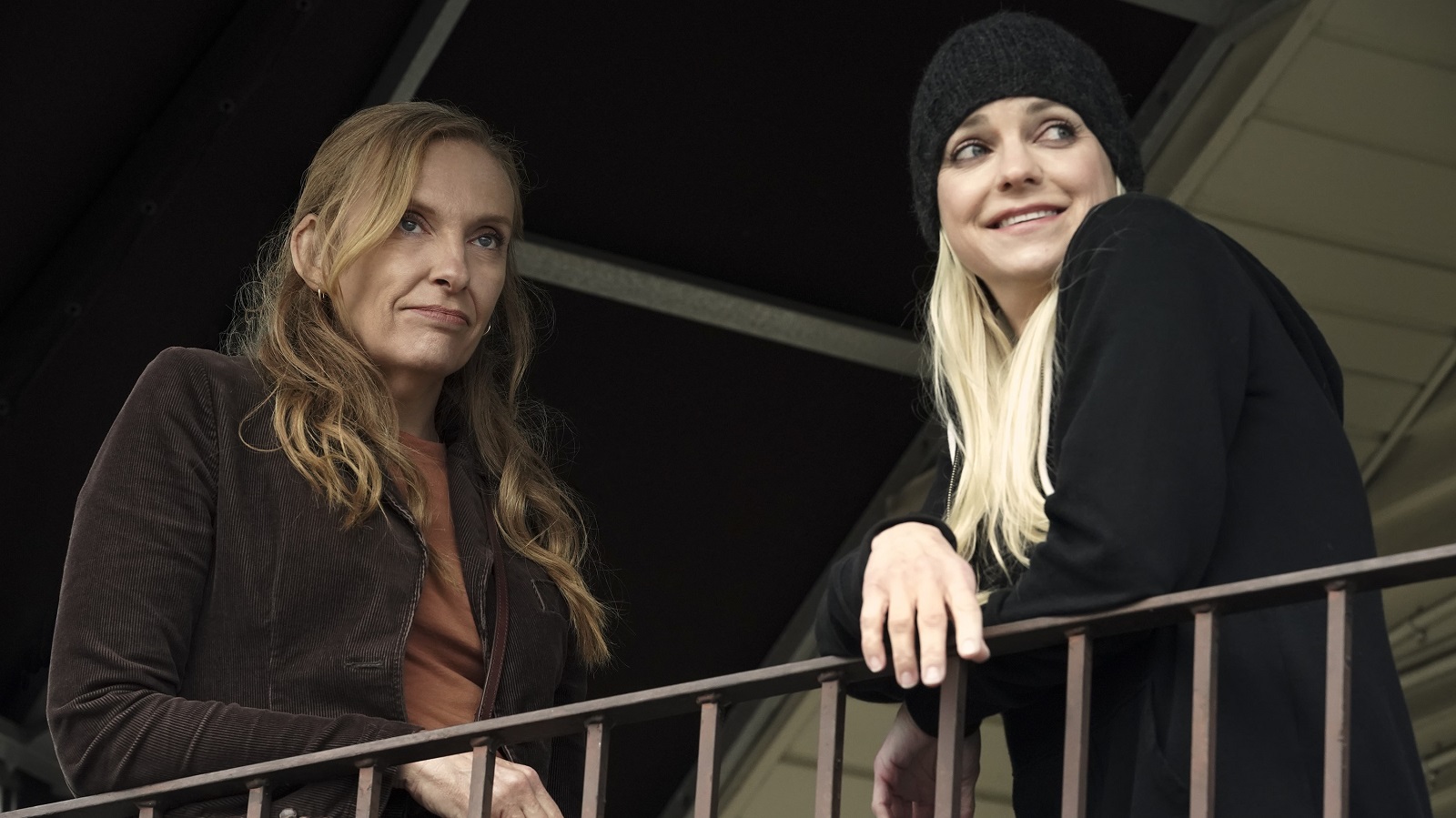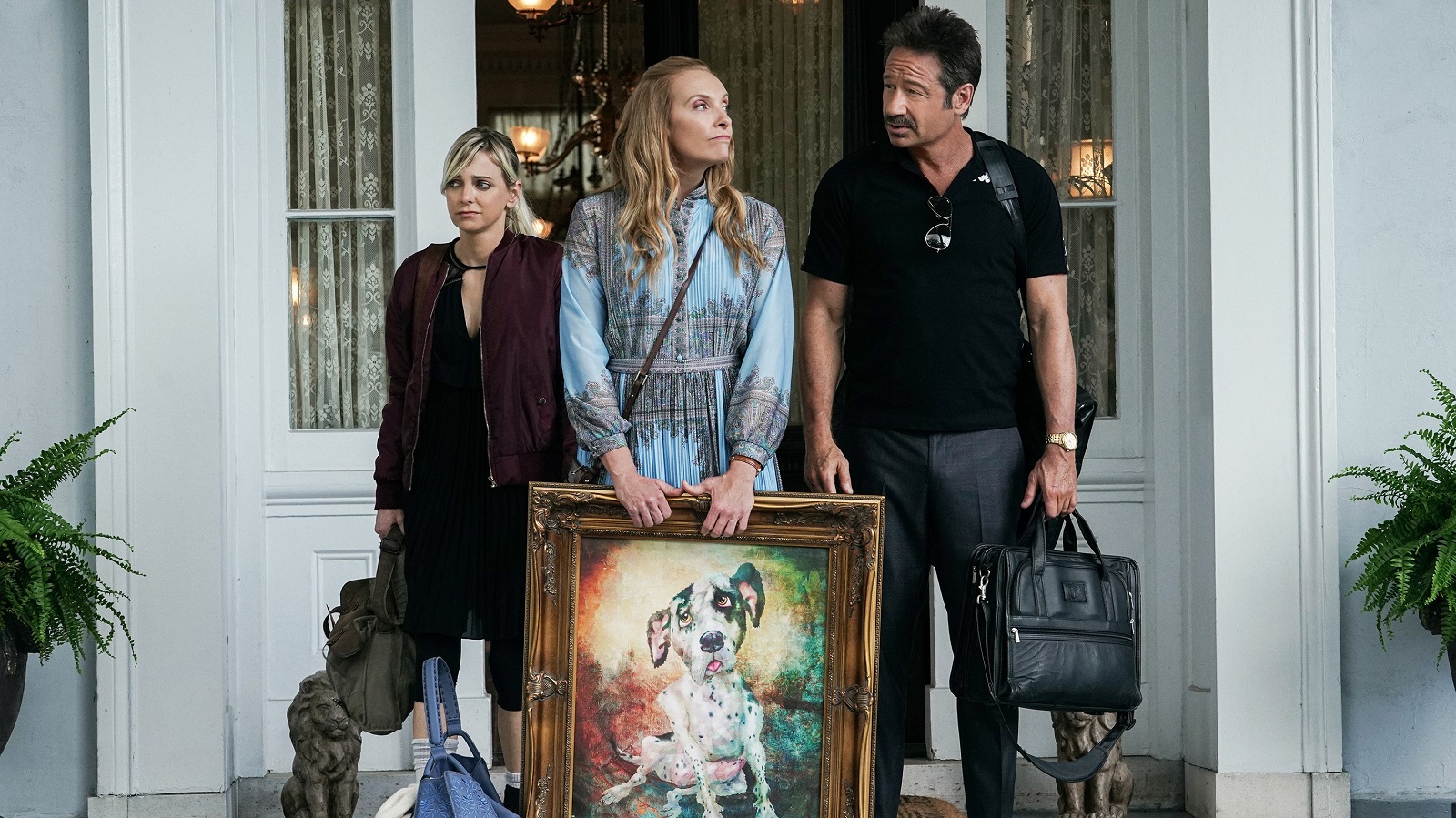Composer Will Bates is best known for this work on The Magicians, The Lost Symbol and films including Imperium with Daniel Radliffe. In his latest collaboration with writer director Dean Craig, he got to explore a family farce with The Estate – starring David Duchovny, Toni Colette, Anna Faris and Kathleen Turner.
Will recently took time out to chat with Martin Carr about his involvement, as well as what made this project so appealing.

Image via Signature Entertainment.
How did you first get involved with The Estate?
I guess it was just one of those things where my agent put me in touch with writer director Dean Craig and we just hit it off. We talked a lot about different kinds of comedy scores and what we liked and didn’t like. This was actually the first time we had worked together and I’m sure we’ll be doing more stuff in the future.
From a creative perspective, what were the advantages of having a writer director on this project?
It tends to mean that they know exactly what they want. They understand the DNA of the piece inside out – whether they are an expert in music is not even that important. I feel like part of the job of any composer is to translate something that is essentially abstract into something musical. I feel like Dean knew exactly when something was working and when it wasn’t – which for me is ninety percent of the battle right there. I have been lucky enough to work with a lot of writer-directors over the years and it is something I have noticed. That person is an absolute expert on that project, which is sometimes very helpful.
Considering that The Estate is a pitch black comedy drama, how did that influence your musical choices?
One of the first things we talked about is how I felt that music is capable of doing so much. The thing that I feel it does not have is the ability to make people laugh. There’s something that Dean and I call banana peel music, whenever something is self consciously too funny in the score. It’s like over embellishing a joke, like that sort of pizzicato string thing, it’s just a stylistic choice that we both want to avoid.
I feel like there’s a lot of counterpoint in the score that we talked about that seems to really work. I feel like in my first round of sketches we talked about how it would be interesting if it’s almost like a horror score, like it’s got a real darkness to it. I remember my first few sketches, he would be like that’s great, that one’s great, that one’s like actually making me scared, and I don’t think that’s quite what we were looking for [laughs].
It was really a process of finding what the tone was, and I think counterpoint is a good word for it. We didn’t ever want it to be a self consciously funny score, but it definitely asked to sort of match the rhythm and pacing of the performances and the humour, which meant the rhythm was a really important thing.
As it is also dialogue heavy and leans towards farce, what sort of challenges did that present?
That sort of comes back to this idea of rhythm. Right from the beginning Dean felt strongly that it needed to be very percussion heavy. He and a wonderful music supervisor called Johnny Guilbert tried different things before I came on board. They felt that the things that seem to be working were these percussive jazz influenced pieces, so my job was really to take that idea and turn it into something more specific.
It was really the performances, the way that it’s cut, it’s very fast and quite intense and yes farcical. I used a wonderful drummer called Spencer Cowen, who’s a jazz drummer and also a really great percussionist, and a guy called Gary Wicks, who played upright bass on it. I put this amazing rhythm section together and really just let them loose. They needed to have this feeling of performance that matches the same performances on screen, so in a way the jazz influence was really helpful. It came from a discussion between Dean and Johnny and I around tone right at the beginning, which led to the way it sounds.

Image via Signature Entertainment.
Having gone from the film Imperium through to The Magicians and The Lost Symbol, both for television, how has your approach to projects changed?
I guess it’s just a case of sharpening your tools. I feel like I’ve learnt to understand what it is that people are calling me to do if that makes sense. Everybody wants a unique special little sound and I have various ways of making that happen. I’m very inspired by sound, I feel like melodies tend to get born out of weird choices.
Every project has to have its own unique identity, the beginning of every project involves a lot of research and kind of exploring. Maybe I’ll go out and buy a new instrument and learn how to sort of haphazardly play it and find my own way around it, and then maybe that will give birth to some sort of sound and then give birth to some sort of melody.
I think that over the years we all get kind of better at finding those ways. This is my home studio but I have another studio in North Hollywood and it’s designed to encourage accidents if that makes sense. Everything is always on, everything is plugged into the board, but there’s little tricks that I have to make sure that I’m not doing the same thing every time. I think that’s also really important for all of us, and I feel like I’ve been really lucky, the projects that I do tend to always be very different from the last one. I’m on something right now that couldn’t be further away from what I did with Dean, it’s great and I think that’s important too. Improvisation, learning to sort of not repeat yourself is like key.
From your perspective, which medium gives you the most creative freedom, film or television?
I love them both and I feel like they’re both very different. In a way I start both of them in the same way, I’ll always have a moment behind the piano, behind an instrument, that sort of leads to what I call like a Eureka moment, where I find a record sequence or melody that wouldn’t exist without this character or this situation. This sort of aha moment that always happens.
I mean the scale of television is so different to film. I love that it’s almost like a math problem. I love that thing, like being able to plant little seeds of themes early on in the season that can kind of grow into something new later on. You can do that with film as well and it’s great, but there’s like a different scale of that in TV that I’ve grown to really love. I feel like I’ve been doing a lot of TV and when I’ve done movies that are sandwiched between TV shows, it’s sort of ‘oh yeah I forgot how much I love this’ [laughs]. It’s all about variation, I love it being kind of a little bit of everything.
Can you describe for me your perfect Sunday afternoon?
My perfect Sunday afternoon is probably digging through some vinyl with my kids, force feeding them a bunch of obscure jazz records, drinking a Margarita and making some sort of weird food [laughs].
Martin Carr would like to thank Will Bates for taking part in this interview.
The Estate is now in selected theatres and on demand.


